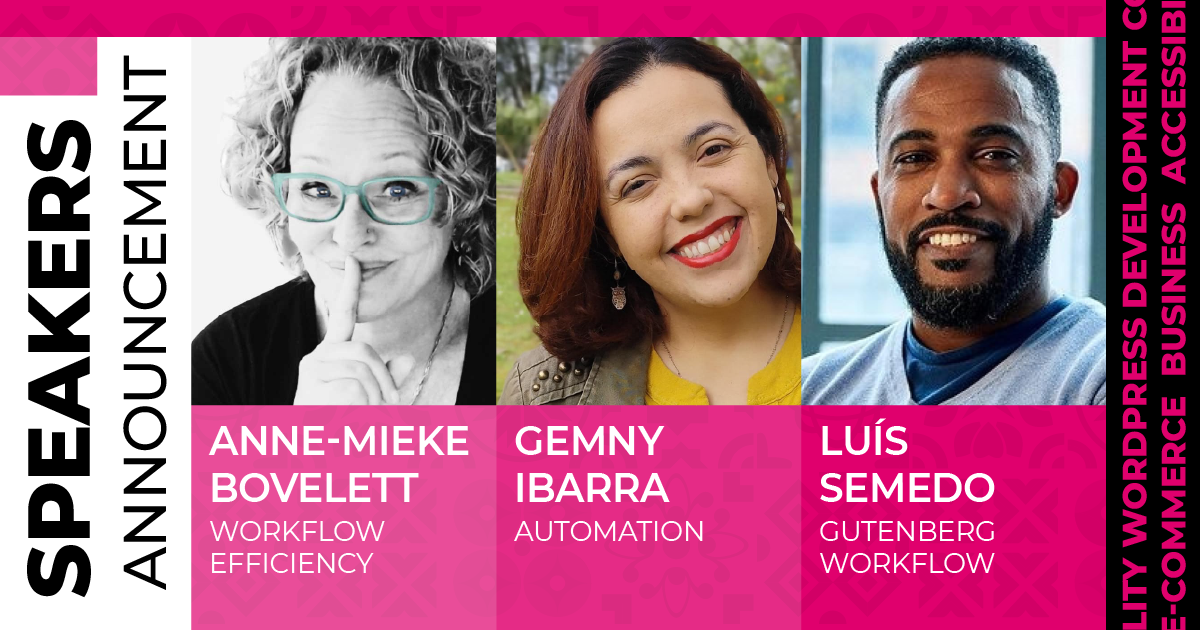Today, we’re thrilled to announce our second group of speakers, who will be covering topics ranging from workflow efficiency to automation and Gutenberg development.
Let’s meet them:

Anne-Mieke Bovelett
Anne Bovelett helps businesses unlock hidden revenue through digital accessibility and smarter tooling. With extensive experience in WordPress and UX, she shows how accessible design improves conversions and compliance without added complexity. In her talk titled “Where does your time (and money) go? rethinking the true cost of your WordPress stack“, she challenges web professionals to rethink their workflow and stop accepting inefficiency as a business cost. She will reveal how the wrong tools drain time, limit profits, and lead to unpaid maintenance work. If you want to maximise your billable hours, this session is for you!

Gemny Ibarra
Gemny has a hybrid background, combining experience in development and OSB consultancy with training in coaching and agile methodologies. In her talk, “Power Your WordPress Development with Automation”, she’ll show how automation can transform the way you work with WordPress—streamlining key processes like content creation, article publishing, and social media sharing. She’ll demonstrate how to cut down hours of manual work into just minutes of automated efficiency – all without needing advanced technical knowledge!

Luís Semedo
Luís has been working with WordPress for over 10 years, dedicating his time to helping the community make the most of the platform. He organises WordPress Meetups in Rotterdam, has volunteered at several WordCamps, and was part of the organising team for two WordCamps in the Netherlands. In his talk in Portuguese, “Como Otimizei o meu workflow na Era Gutenberg: Design, Blocos e GitHub” (How I Optimised My Workflow in the Gutenberg Era: Design, Blocks and GitHub), he’ll demonstrate how to integrate design, development, and version control into a streamlined Gutenberg workflow. He’ll show how to use the block editor to build layouts, extract and optimise the generated code, and implement it within a GitHub version control system – making it easier to collaborate and maintain blocks over time.

